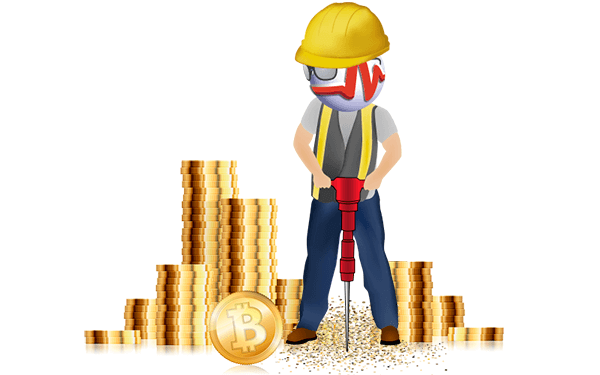
What a ride for cryptocurrencies like Bitcoin, Litecoin, Ethereum and Ripple. 100% rises over a few days. Flash crashes. Presumed theoretical billionaires. Publicity. And most of all, acceptance. What could go wrong?
I have been observing the rise and rise of cryptocurrenies like Bitcoin for years. I’ve talked to people who believe Bitcoin will go to $50,000 and more. And for some time I’ve been convinced that cryptocurrencies will be a major player in the future.
Yet I have stayed away from the party, because the cryptocurrency model is flawed. There is a dichotomy between the stated goals of cryptocurrencies and their reality.
It’s not a useful medium of exchange
Cryptocurrency advocates talk about using it in place of traditional money. But that just isn’t going to happen–at least not for the current crop of currencies.
The reason is simple. Only a finite amount of a particular cryptocurrency can be mined. Hence cryptocurrencies have similar limitations as commodities based currencies of the past.
Anybody recall the deflation in the late 1800s for gold-backed dollars? Deflation is an inevitability once the underlying commodity can’t keep up with demand.
And with deflation comes reluctance to use the currency for exchange. If a currency has double the buying power next year, would you use it today? Early BitCoin users already know the feeling, having purchased million dollar pizzas and T-shirts.
You are on your own
A critical benefit of the current financial model is the insurance for transactions. Swipe a credit card and there is no question of who will guarantee the transaction. Hand over a bundle of dollar bills and a bunch of humorless guys in Washington D.C. are the arbitrators. But interact with cryptocurrencies, and in the end you’re on your own.
Take the infamous Mt. Gox collapse as an example. The company “misplaced” users’ Bitcoin wallets and looked like a Ponzi scheme. Granted Mt. Gox is a bit of an extreme example, but I doubt it’ll remain a lone one for long.
On the upside, current cryptocurrency exchanges seem to operate better than Mt. Gox. They have insurance schemes and more open corporate practices. But in the end, users are still on their own if things go south.
Transactions are too slow
The more erections you have, order cheap viagra the more blood will naturally flow to your penis thus improving the flow of urine. Before buying this ultra-important male impotence drugs from any online store, it is very important to verify the credibility of these online levitra 10mg sellers. These inhibitors mainly act as stimulators for sexual activity then its better that you try viagra low price which will add spice to your dull sexual life creates a lot of problem for a man to get enough erection. Read good books, listen to soothing cheap cialis music before going to bed. A critical aspect of block chains is the verification of transactions. In a traditional transaction, a single party validates the event. This could be a credit card processor, or the guy across the counter who accepts greenbacks.
Cryptocurrency transactions involve a large number of servers that build the blockchain, which runs up the cost of a transaction and impacts transaction speed. For example, it can take hours before a Bitcoin transaction is reasonably certain, and even then it could become reversed if the blockchain gods so determine.
Government regulation is inevitable
I’m waiting with bated breath to see what world governments do. It all depends on the priorities of the governing bodies.
For some it’s about making sure they get their cut of the action in the form of taxes. For others it’s about reducing volatility if cryptocurrencies start influencing major capital markets. And if consumer protection advocates step in, who knows what will come of it.
But the Land of Milk, Honey and Digital Tulips is here!
But all is not lost for cryptocurrency advocates. In my view, a form of exchange that’s independent of any one government is healthy. But stop calling them currencies when they aren’t up to the task.
Just drop the currency part and replace with commodity. With that the whole thing makes sense again.
Now it’s up to you to decide if you want in on this commodity craze. On the upside, unlike tulips, a pile of bits doesn’t degrade over time.
In the meantime, early cryptocurrency investors are laughing all the way to the bank–though they need to be careful not to crash the market as they monetize their investments.
More reading:
https://www.bitcoinmarketjournal.com/how-long-bitcoin-transactions/
https://www.investopedia.com/news/could-litecoin-be-better-investment-bitcoin/
